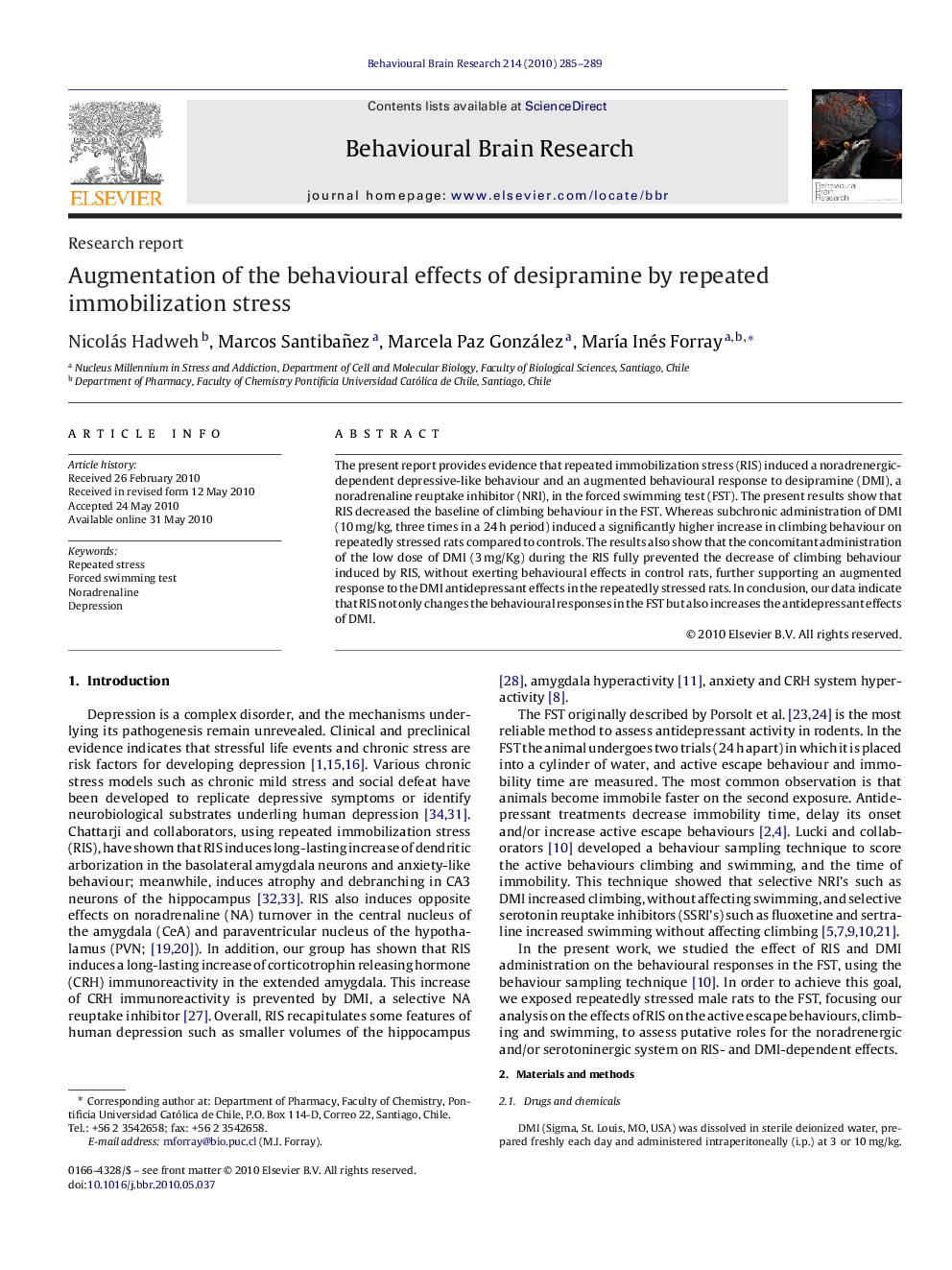| Article ID | Journal | Published Year | Pages | File Type |
|---|---|---|---|---|
| 4314127 | Behavioural Brain Research | 2010 | 5 Pages |
Abstract
The present report provides evidence that repeated immobilization stress (RIS) induced a noradrenergic-dependent depressive-like behaviour and an augmented behavioural response to desipramine (DMI), a noradrenaline reuptake inhibitor (NRI), in the forced swimming test (FST). The present results show that RIS decreased the baseline of climbing behaviour in the FST. Whereas subchronic administration of DMI (10Â mg/kg, three times in a 24Â h period) induced a significantly higher increase in climbing behaviour on repeatedly stressed rats compared to controls. The results also show that the concomitant administration of the low dose of DMI (3Â mg/Kg) during the RIS fully prevented the decrease of climbing behaviour induced by RIS, without exerting behavioural effects in control rats, further supporting an augmented response to the DMI antidepressant effects in the repeatedly stressed rats. In conclusion, our data indicate that RIS not only changes the behavioural responses in the FST but also increases the antidepressant effects of DMI.
Related Topics
Life Sciences
Neuroscience
Behavioral Neuroscience
Authors
Nicolás Hadweh, Marcos Santibañez, Marcela Paz González, MarÃa Inés Forray,
